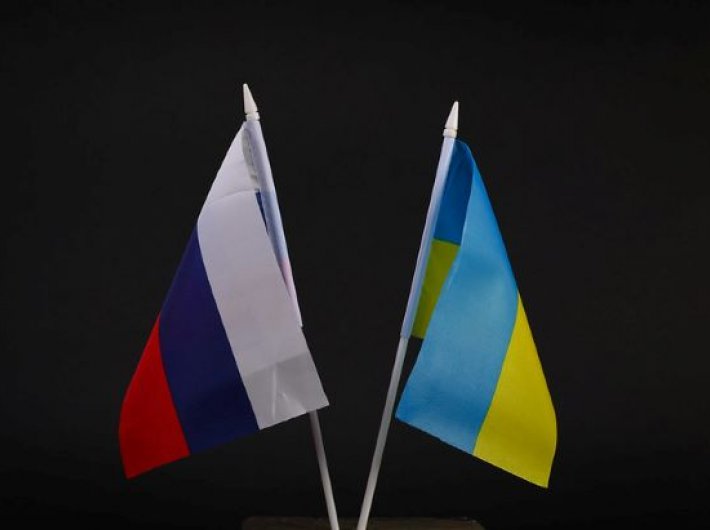The ongoing Russia-Ukraine crisis, which has resurfaced the dirty WW (world war) word to the horror of a world just trying to come out of a crippling pandemic Covid-19, has reached a stage where next 24 hours are critical in many aspects and will shape the contours of international relations.
First, the encouraging news. Ukraine and Russia have agreed to talks at a venue near the Belarusian border. And more encouraging is to note that the talks will be “without preconditions”. In diplomacy, this phrase ushers in immense possibilities. Nobody wants war to escalate. And the threat perception has gone up substantially in past 24 hours, with the Russian president alerting its nuclear arsenal to “special combat readiness”. Hence, any proposal of discussion brings promise of hope, and the globe fervently prays for a breakthrough in talks.
Second, and the disturbing news, which has not caught global attention as much is the humanitarian aspect. Ukraine hospitals will run out of oxygen in next 24 hours as war disrupts health services. The World Health Organization (WHO) reported that trucks are unable to transport medical oxygen supplies from plants to hospitals across Ukraine, putting thousands of more lives at risk. At least we Indians can relate the plight first-hand, as the situation is similar to what we witnessed in Delhi during the second wave of Covid-19. And, with movement of migration from Ukraine to various parts, there is a possibility of a fresh outbreak of Covid-19. The global humanity must coordinate efforts that medical and essential supplies are maintained at any cost to mitigate human disaster.
Third, there is a United Nations General Assembly (UNGA) emergency session scheduled today, after a deadlock in the Security Council meeting last week due to veto by Russia. This will be a test of effectiveness of the UN in general to address conflict. As such for decades, the UN has been losing its sheen due to the rise in unilateralism led by global superpower US in alliance with the North Atlantic Treaty Organization (NATO) member states. It must be understood that NATO is not a union of democracies, and it is a military alliance. Can the UN do something in terms of peacekeeping or humanitarian assistance including refugee problems? All eyes are on the UN to see if collective conscience of global leaders triumphs over partisan mental blocks.
On the UN, a few general observations. Forget the UN, several world bodies were also formed, which have also been reduced substantially in its role play. For example, the limitations of WHO were so evident during Covid-19. It was helpless in rendering an equitable vaccine world order against aggressive vaccine nationalism displayed by the developed world. Now, there cannot be a divided world. The world is an integrated comity of nations with economy, health and development intermingled. A just order has to be equitable to be acceptable. Not only the UN, the various bodies like World Bank, IMF, FAO, UNESCO, UNICEF etc also need to be revived for a better world in coming decades.
Fourth, the economies of various countries, as discussed, are integrated. Russia with large exports of Natural Gas to European countries and crude to the world can create havoc in terms of escalating energy price with potential to slow down growth. Oil importing nations like India will be worst hit. It is estimated that every $10 rise in crude adds up deficit $12.5 billion andexerts inflationary pressure significantly. Apart from that, the world will also feel pinch if the conflict continues, as Russia and Ukraine together form the bread basket of the world, contributing 29% to global exports of wheat, apart from other agro commodities like barley, and various edible oils. Disruption in supply chain anywhere is a threat to recovery everywhere.
The backlash for Russia is also going to be tough, as various sanctions are being placed by Western countries, most important one being excluding Russian banks from the Society for Worldwide Interbank Financial Telecommunication (SWIFT), a global financial messaging system, which will cripple financial, trade and commerce activities of Russia.
Finally, a thought not for immediate relevance but with long term perspective. As far as Non- Alignment is concerned, it is a forum of 120 developing world states which has almost been rendered past its expiry date, post-cold war. With several power blocks emerging now, there is a felt need to revive the spirit of non-alignment for a partnership of mutual development and cooperation rather than having military alliances and destruction. There should be serious introspection to see if it can reinvent and reorient itself to stay relevant
In essence, the need today is de-escalation and dialogue to build up a democratic world order based on mutual respect and trust in common good of mankind at large. United we stand and we need United Nations and its bodies. We need to dismantle blocks and protectionism for a freer world order. Either we build a new world order that gives hope for peace and development, or we accelerate the pace for a mass destruction of the world we know as of now.
For immediate next, let us hope Russia and Ukraine can come to some broad terms and focus on arriving at some point of understanding to iron out differences over table , rather than in war zones.
Mishra, a policy analyst and columnist, is a topper in political science from Sambalpur University, Odisha.
